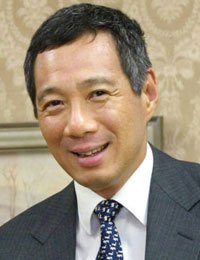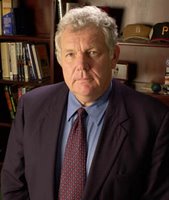While the Prime Minister noted the declining usage of drugs among Malays, he noted several concerns among social issues, including:
I have been searching for a copy of the report online, but have not been able to find it just yet. In the meantime, here is a recent Channel News Asia report on the subject:
More Malay/Muslim households financially better off: new report
May Wong, Channel NewsAsia
September 3, 2007
SINGAPORE: Malay/Muslim households are now much better off financially compared to 25 years ago, with more owning luxury items such as cars, according to a new report tracking the progress of the Malay community since 1980.
The 40-page study also showed a steady rise in the number of single-parent households.
Out of every 1,000 Malay households, 70 were headed by single parents in 2005, compared to 47 in 1980.
Number of births by single Malay women also increased from 5.9 to 9.3 per 10,000 female residents in 2005.
For some Malays, education is the key to a better future.
Irwan Shah, 27, graduated with first class honors in education about three months ago, and is now working as a teacher.
He is an example of how the Malay/Muslim community has progressed.
Irwan's parents are firm believers in the importance of education. And from all that he has received, Irwan is now going to pay it forward.
“Currently I teach. So I hope that I can teach them, not just through academics but through other areas as well, like values, especially behavior and character. Without good character, it's no use to be an intellect,” he said.
"I was glad that I was given the opportunity by Mendaki. When I was young, I had the tuition scheme. It started when I was in primary three, all the way till I was in (secondary) four. Then even when I entered polytechnic, I didn't come from a well-to-do family, they helped me by paying for my tuition fees."
The report also showed that Malay/Muslims in the workforce have better education today compared to 25 years ago.
In 1980, 19 per cent of Malay/Muslim workers have a secondary or higher education qualification. But in 2005, the number jumped to 70 per cent.
The number of Malay/Muslims holding managerial or professional jobs also grew from seven per cent in 1980 to 21 per cent in 2005.
Despite better education and better jobs, the community still faces social challenges such as dysfunctional families, increasing divorce rates and teenage pregnancies.
Minister-in-charge of Muslim Affairs Dr Yaacob Ibrahim said, "We've recognized this problem for a long time, since 2002. We've been evaluating the data. And therefore we've started a couple of programs dealing with teenagers and youths at risk. What we'll do now is to put all of these together on the drawing board and see whether there are gaps and if those gaps are critical and strategic to the community. We'd probably have to move our resources there.”
He believed if the community puts in the same amount of efforts in tackling these issues as it does in overcoming the drug problems and education challenges, it will succeed.
-- Channel News Asia

